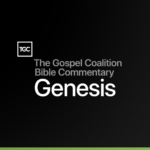“Meaningless! Meaningless! . . . Utterly meaningless! Everything is meaningless” (Eccl. 1:2)! So cries the author of Ecclesiastes as he attempts to make sense of this world “under the sun.”
Looking around, it’s easy to conclude that life is absurd.
We live in a world full of injustice. Evil people prosper; good people suffer.
We live in a world terrorized by death. Life can be snuffed out unexpectedly. Death comes to everyone; no one escapes.
We live in a world that throws the unexpected at us. Our inability to control our destiny adds to our sense of despair and hopelessness. For some in difficult circumstances, death can seem better than life itself.
While Christians aren’t immune to feelings of despair and hopelessness, faith in Jesus Christ lessens the pain of pessimism and despair. Faith in the resurrected Son of God gives us confidence to trust that this life is but the prelude to something more wonderful.
City to Come
The Bible doesn’t present a vague, fuzzy picture of the life to come—although many Christians appear to be poorly informed about the future that awaits them. The apostle John’s vision of New Jerusalem abounds with symbolic reminders of how God will establish an eternal city on a renewed world, binding together heaven and earth (Rev. 21:1–22:5).
The author of Hebrews encourages us to look forward to the “city that is to come” (Heb. 13:14; cf. 11:8–16, 39–40; 12:22). The apostle Paul also believed in a future metropolis, contrasting the present city of Jerusalem with a “Jerusalem above” (Gal. 4:21–31). Importantly, Paul viewed himself as a citizen of this eternal city (Phil. 3:20). For this reason, he contrasted his present “transient” experience of life with the “eternal” life to come. To comfort and encourage Christ’s followers in Corinth, he wrote:
So we do not lose heart. Though our outer self is wasting away, our inner self is being renewed day by day. For this light momentary affliction is preparing for us an eternal weight of glory beyond all comparison, as we look not to the things that are seen but to the things that are unseen. For the things that are seen are transient, but the things that are unseen are eternal. (2 Cor. 4:16–18)
Paul understood well how a vibrant faith in the world to come can affects our lives in the present. It can be a source of deep strength when we face terrible challenges.
Focusing on the city to come prevents us from being captivated by the ephemeral attractions of this present world.
Focusing on the city to come also prevents us from being captivated by the ephemeral attractions of this present world. With good reason, Jesus warns his followers:
Do not lay up for yourselves treasures on earth, where moth and rust destroy and where thieves break in and steal, but lay up for yourselves treasures in heaven, where neither moth nor rust destroys and where thieves do not break in and steal. For where your treasure is, there your heart will be also. (Matt 6:19–21)
Citizens of the New Jerusalem
Christians are often ridiculed for promoting a “pie in the sky when you die” mentality, especially when they speak of a future, eternal city. But such an outlook doesn’t reflect the teaching of the Bible. Jesus didn’t instruct his disciples to pray, “Take me to heaven,” but rather, “Your kingdom come, your will be done, on earth as it is in heaven” (Matt. 6:10).
For those united to Jesus Christ, eternal life begins here and now, as does citizenship in the eternal city.
For those united to Jesus Christ, eternal life begins here and now, as does citizenship in the eternal city.
Jesus challenges his followers to pray and work for the spread of God’s rule, all the time looking forward in faith for the coming of the city of God. The latter should influence profoundly how we do the former.
- We’re to live in this world as citizens of the world to come, influenced by its values and virtues.
- We’re to exercise true humility, remembering that we have been redeemed from evil only by the grace of God and not by our own achievements or piety.
- We’re to witness to an alternative worldview that promotes belief in a Creator God, highlighting the inadequacy of a purely materialistic view of human existence.
- We’re to be peacemakers, reconciling those who are alienated, especially from God.
- We’re to make disciples of Jesus Christ, extending God’s kingdom throughout the world through self-sacrificial love.
- We’re to hunger and thirst after righteousness, caring for the oppressed and promoting justice for the benefit of the marginalized.
- We’re to resist the powers of evil, arming ourselves for the spiritual battle that continues to rage until Christ returns.
- We’re to consider ourselves exiles and pilgrims in “Babylon,” holding lightly to this life but living in this absurd and evil world in confident anticipation of all that God will yet do.
- We’re to live holy lives, aiming for personal moral perfection and purity.
- We’re to love others wholeheartedly, including our enemies, as an expression and outworking of our sincere love for God.
- We’re to fulfill our creative capacity as home and city builders but ever recognizing the temporary nature of this present world.
Jesus Christ calls his followers to be kingdom laborers here and now. We labor with the confident assurance that Christ will return to address every injustice, vindicating and punishing as appropriate. Then, with the defeat of evil, God will establish his eternal city on a renewed earth.
Is there enough evidence for us to believe the Gospels?



































